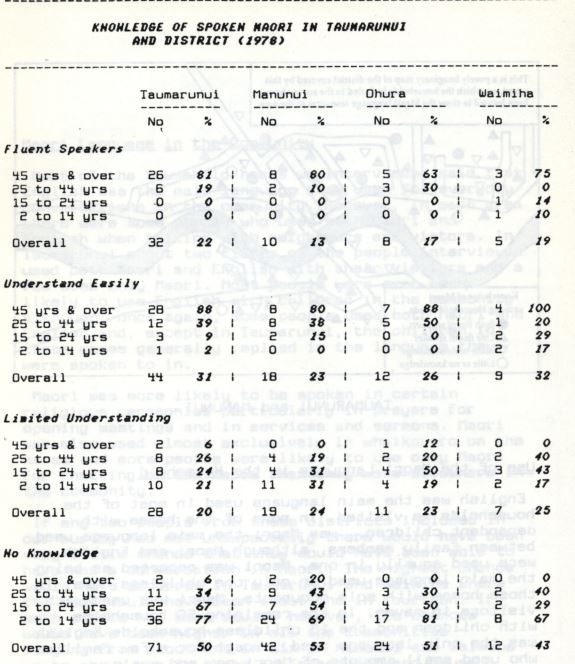-
Ngā Karere me Ngā Rauemi
News and Resources
Ngā Karere me Ngā Rauemi
News and Resources
-
Te Rangaihi Reo Māori
The Movement
Te Rangaihi Reo Māori
The Movement
-
Te Pae Kōrero
Our Community
Te Pae Kōrero
Our Community
-
Huihuinga
Events
Huihuinga
Events
-
Ngā Ara Ako
Learning Pathways
Ngā Ara Ako
Learning Pathways
-
SearchSearch
Search
Search

Although the ability to speak and understand Maori was generally confined to the over 5 age group, the Maori language was nevertheless very important to many of the household heads we spoke to. In Waimiha and Manunui about half said Maori was the language they preferred to use most for everyday conversations and about a third in Taumarunui and Ohura preferred Maori. Many of those adults who could not speak Maori fluently regretted this, especially those whose parents had tried to teach them when they were young. Some people's parents had refused to ever speak Maori to them, encouraging them, instead, to concentrate on grasping the English language, believing that this was the key to a good education. Some informants were very bitter about this because they now have no knowledge of Maori at all.
Manawatū-Whanganui | Ruapehu | 1970-75 | 5% of Māori children can speak te reo. (1970-75) | Story is by tangata whenua
















Comments